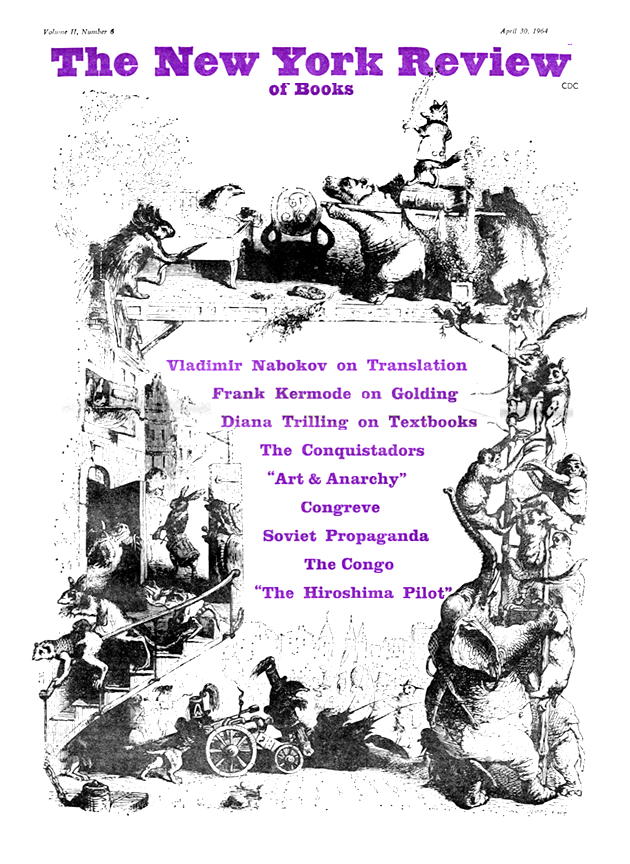In response to:
The Disaster at Lincoln Center from the April 2, 1964 issue
To the Editors:
Elizabeth Hardwick’s piece “The Disaster at Lincoln Center”…seems to me to be a parochial attack, filled with mephitic half-truths and outright absurdities, exhibiting the myopic perspective of a village librarian…Perhaps her righteous anger may be applauded by some—and it is a measure of the necessity of such articles that when it was read backstage in A Man For All Seasons, it stirred violent reactions both pro and con; and, to the credit of these theater people she seems to despise, almost all were quick to defend what truth there was in her article and her right to say it. All of which makes simply sad her last paragraph where one notes that a developed social conscience forces her to admit (however gracelessly) that some kind of “final solution” to the problem of professionalism—which would decimate the ranks of actors, directors, and producers now working in our theater—is unfeasible.
She seems not to realize how difficult and shaky an enterprise a repertory company is; and how difficult it is to turn the tide of an overwhelmingly selfish enterprise like the commercial theater. Since nearly everything in this country is founded on the principle of profit, dare she expect the theater to be different? Yet, in this instance, I know personally—as many do—that the actors, directors, and probably even producers, have tied themselves to a venture for far less money than they usually command, and for nearly three years of their lives, only in the bare hope of turning the tide. That the first season has been disappointing is no doubt their fault, but options are not lightly dropped even by munificently patronized enterprises. The third play had the merit of O’Neill’s name, and is an important American play which surely deserved its first hearing since its original opening.
Further, it is absurd to state that drama is “first and last” an act of literary composition. It is not. If it is written to be played by living actors on a stage—whether open, proscenium, arena, or sound—its last state, and the one in which it is most fully realized, is when actors stand upon that stage and deliver its meaning in living speech to an audience. To assert otherwise is to betray an ignorance of even the fundamentals of the history of plays and why they were written from Aeschylus forward. It is equally absurd to insist that great drama is necessary great literature to read, as witness all we know of the Commedia dell’ Arte, the Kabuki, and for that matter, Marcel Marceau. The Greekbased word “drama” is translated as “action” not as “literature.”
It would be interesting to know what Miss Hardwick conceives drama to be if it is not “an arresting idea or situation projected by mechanical, theatrical devices.” I would call that as reasonable a general description of Oedipus Rex, as of Marathon ’33. But, obviously, there is no gainsaying the difference, either. Our theater parades before us a seemingly endless collection of “packages” which have no heart, no concern with real issues, no involvement with the greatnesses or the great wrongs which exist in this nation, no elevation of language, no sense of destiny, struggle, or danger. But surely it is as much the duty of critic to act with maturity in finding the new and exalting paths as it is solely to attack blindly with too few facts and with only rage or hatred as a weapon …
Lawrence Luckinbill
Toronto, Canada
This Issue
April 30, 1964


